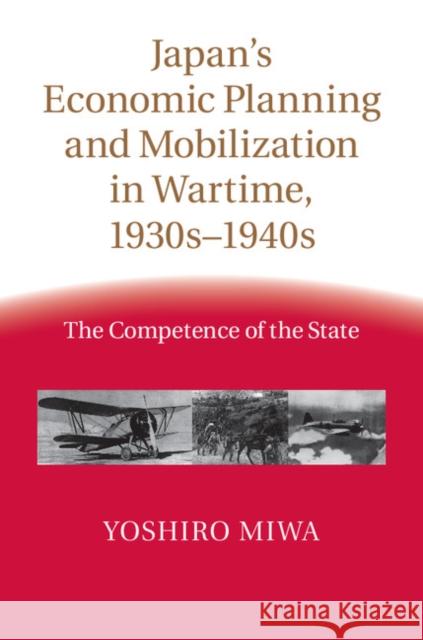Japan's Economic Planning and Mobilization in Wartime, 1930s-1940s: The Competence of the State » książka
Japan's Economic Planning and Mobilization in Wartime, 1930s-1940s: The Competence of the State
ISBN-13: 9781107026506 / Angielski / Twarda / 2015 / 482 str.
Although most economists maintain a (justifiable) mistrust of a government's goals when it intervenes in an economy, many continue to trust its actual ability. They retain, in other words, a faith in state competence. For this faith, they adduce no evidence. Sharing little skepticism about the government ability, they continue to expect the best of governmental intervention. To study government competence in World War II Japan offers an intriguing laboratory. After all, governments direct wars. They decide whether to prepare for them, when to initiate them, how to execute them, and the terms on which to end them. Toward that end, the public sometimes grants them as much power as it can feasibly grant. And in Japan during World War II, the public granted the state the maximum power. In this book, Yoshiro Miwa shows that the Japanese government did not conduct requisite planning for the war by any means. It made its choices on an ad hoc basis, and the war itself quickly became a dead end. That the government planned for the war incompetently casts doubts on the accounts of Japanese government leadership more generally.











